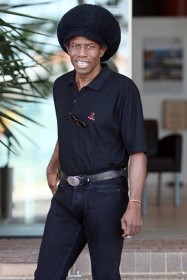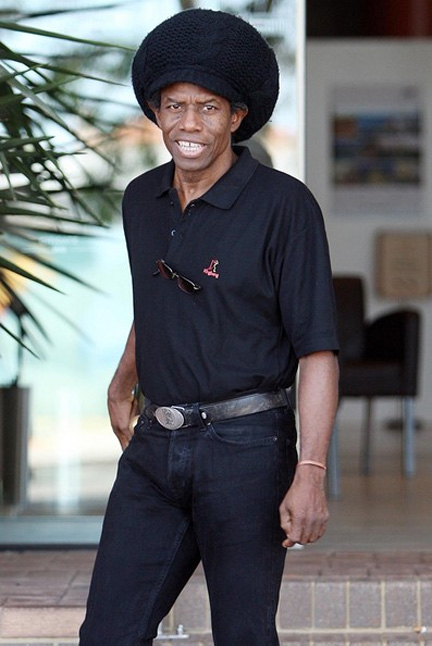The 61-year-old, born in Guyana but raised in London, first won fame in the late 1960s with chart-topping group The Equals.

He spoke to the UK’s Press Association:
Why have you decided now is the time to go out on tour?
It all started last year when I performed at a Mandela Concert, Glastonbury and Womad (music festivals). As a result I decided having sold all of these records all of these years and not having played to a significant number of the people who bought them, I should really go out and make their acquaintance. I’ve missed all of the fantastic times of being out on the road with the band and stuff.
Is it true that, given any opportunity, you’ll talk about the political issues?
Well, I’m one of the artists who formed the long line of protest writers, and it’s not something I actually promote, but that is the way I write – apart from the love songs.
What issues are important to you at the moment?
There are many issues. But I don’t just write for the sake of writing. If something happens politically which upsets my sensibilities, then eventually that will come out in a song. I don’t just sit there and think, ‘Oh there’s something happening in Afghanistan, I’ve got to write about that’ – I’m not that kind of writer. But if there is a particular injustice highlighted in the media which particularly catches my attention, I’ll write about it.
Why did you swap band life to become a solo artist?
Well, there were a number of things which promoted that. The first is if you’re one member in five, you have your own particular political thoughts and sometimes you want to air them, but it might not be the same beliefs of the other guys. I would see that as being slightly unfair to them. That was one reason which precipitated my leaving. The other reason was just the time, and in 1971 I’d become extremely ill with my heart and that prompted me to look at my career. I just couldn’t continue what I was doing with a dicky heart, so I took my leave of my situation – which as it turned out was the right thing to happen at that time.
Why did you decide to move to the Caribbean rather than stay in the UK?
Because I’d always promised myself if I had kids I’d like to see them educated in the Caribbean like I was, and to have that difference of lifestyle. So we moved out there in 1981. I left what had become my home country and decided to take my children and my wife back to Barbados.
How did your children adjust to the move?
They didn’t like the change at first. Once they’d made friends with kids at school it became the most natural thing in the world and they loved it and still love it today. They share my love with the Caribbean.
Why did you decide to set up your own record label?
When I left The Equals I found I’d been used to having a recording studio to work in all the time. Of course, it wasn’t available to me then so I did the next best thing, which was to set up my own which was the first black-owned studio in Europe. I wasn’t thinking about that at the time, I just needed somewhere to work!
Does it surprise you how many times ‘Baby Come Back’ has been covered?
Baby Come Back has been seriously covered by a lot of people over the years, of course by UB40 with Pato Banton – that was exciting to see the record go so large. Because even after they had the number one it came back again as a B-side to one of their hits. It was really a phenomenal adventure to see that happen.
Is Electric Avenue based on the Brixton Street (in London) the same name?
Yes it is titled after the street in Brixton, it’s taken on unimaginable proportions. I didn’t realise when I wrote it that there were so many Electric Avenues all over the world. And now there are even more. It’s a song also like Baby Come Back which has grown in importance and significance, and people have taken it to their hearts all over the world and it has been covered by all and sundry
What did you want to be when you were a child?
I really wanted to study medicine when I was much younger. I was deadly serious about it but unfortunately or fortunately as the case may be, music formed a part of my genealogical make-up. My father was a musician as well as being a mechanic, and music was the strongest drive I had so it was natural I gravitated towards that.
What’s it like coming back to the UK?
England has a special place in my life because half of my life has been spent here and half of my education has been here, so I’m a bi-functional person. I function just as well in the England society as I do in the Caribbean society, and I don’t really put one in front of the other necessarily because there is no need. I get by in both environments.
Do you ever think about retiring?
No, that time hasn’t arrived yet. I’ve got a fairly young outlook on life. I don’t think time has been eroding my energy or my need for creating music. I think I’ve managed to make a certain balance with my lifestyle, and therefore I’ve had a longer period of creativity.





